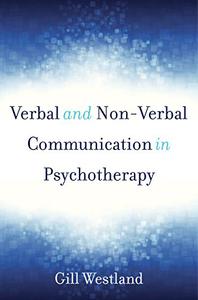
Verbal and Non-Verbal Communication in Psychotherapy by Gill Westland
2015 | ISBN: 0393709248 | English | 320 pages | EPUB | 1 MB
Implicit communications analyzed alongside verbal communication in therapy.
Body language, facial expression, and tone of voice are key components in therapeutic interactions, but for far too long psychotherapists have dismissed them in favor of purely verbal information.
In Verbal and Non-Verbal Communication in Psychotherapy, Gill Westland examines the interrelation of the verbal and the non-verbal in the context of clients and therapists working together. The physiology of communication is also discussed: from overwhelming emotions that make it difficult to speak to breath awareness that makes it easier. Therapists will be able to cultivate non-verbal communication through mindfulness practices and "right brain to right brain communication." It is not just the client's actions and emotions that are significant; it is important that therapists relate in a way that makes it clear to their clients that they are receptive and inviting, and Westland expertly depicts the bodily dimensions of this encounter between client and therapist.
The book brings together insights from a range of psychotherapeutic traditions, including psychoanalysis, arts psychotherapies, humanistic psychotherapy, and, in particular, body psychotherapy, for clinicians who want to expand their communication abilities. Drawing on 30 years of clinical experience, and providing illustrative clinical vignettes, Westland has written a guide both for those who might not have any experience in the theory of non-verbal communications and for lifelong psychotherapy practitioners. She lays as groundwork recent research into the neurobiology of interaction and the foundations of non-verbal communication in babyhood, continuing throughout from a bodymind perspective that pays due attention to the physicality of the body. Westland urges therapists to learn how to leave their comfort zone and try new ways of helping their clients. Writing in a richly evocative, lucid language, Westland seeks to bring about change in both psychotherapist and client as they navigate both the verbal and non-verbal aspects of embodied relating.
Links are Interchangeable - No Password - Single Extraction



